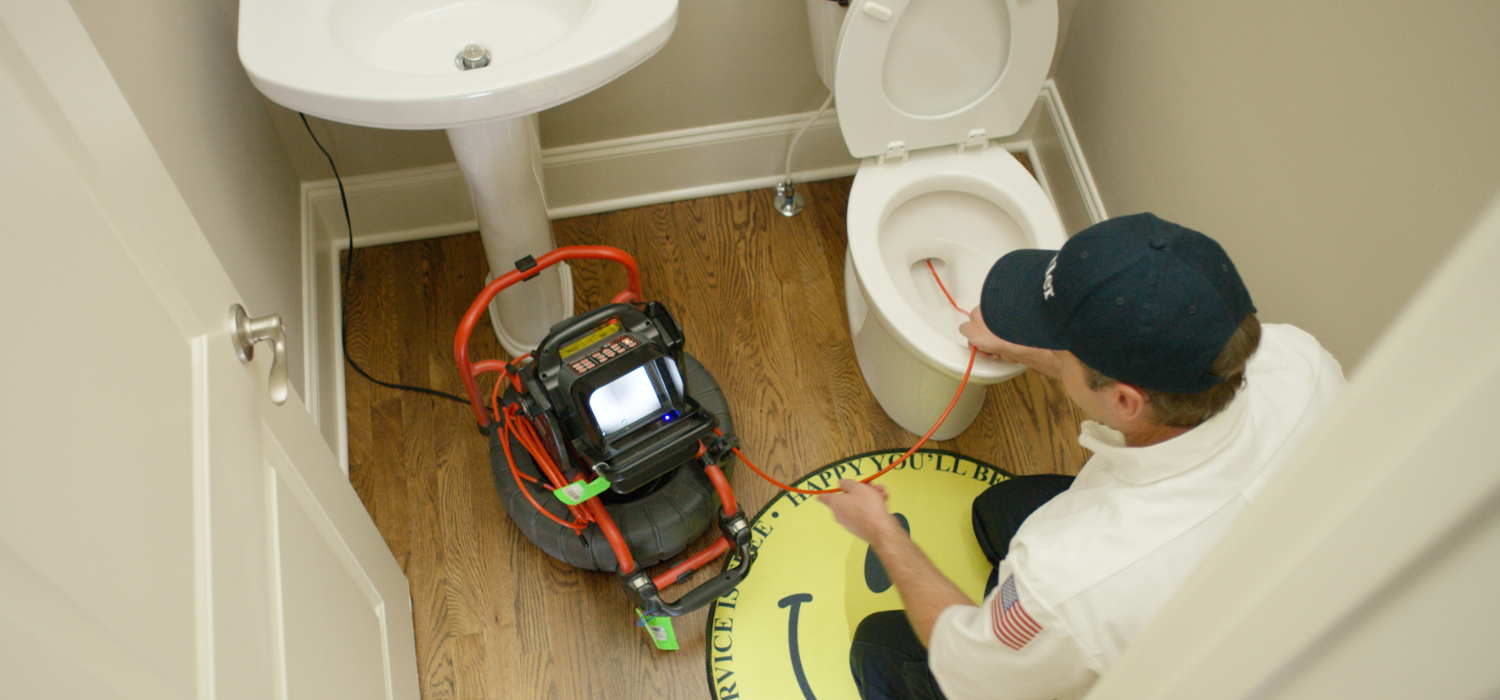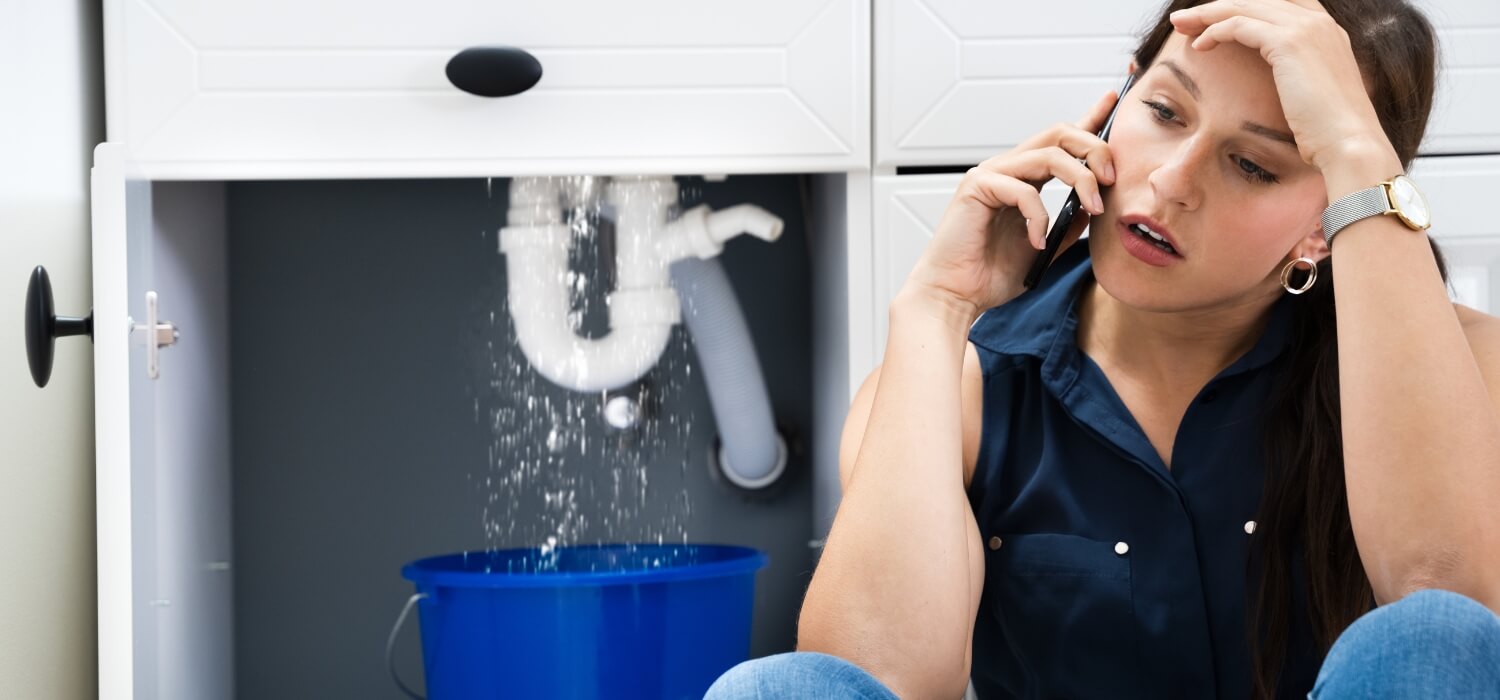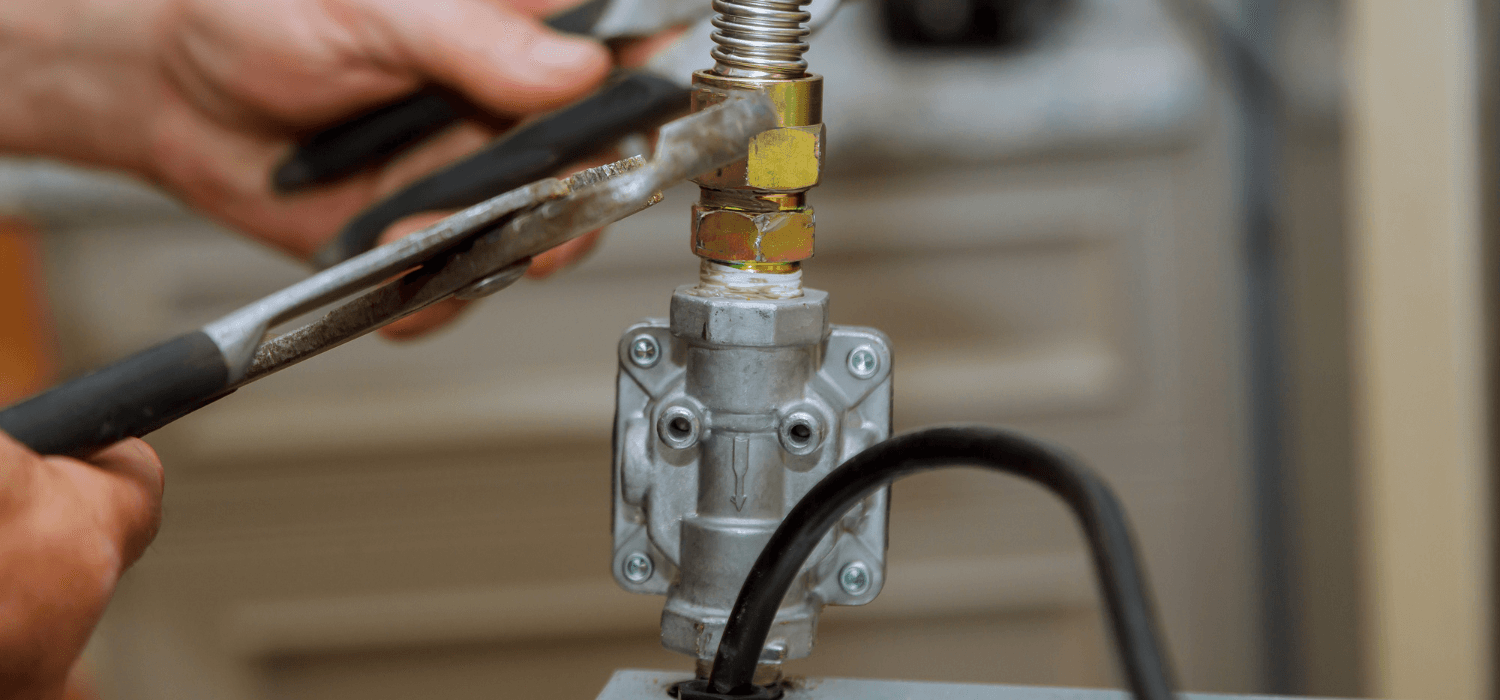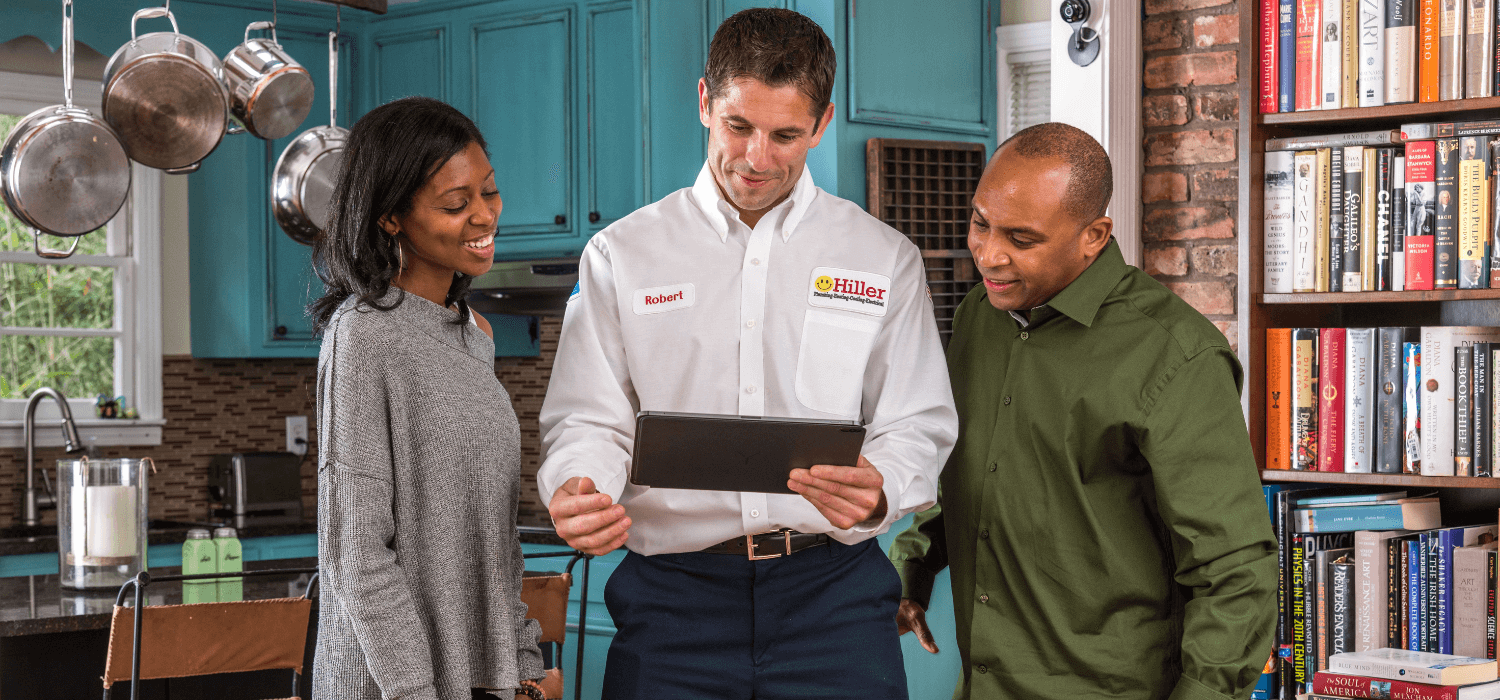How Much Does a Plumber Call Out Cost?
Enjoy reading the latest DIY articles and saving money?
Receive our latest helpful hints, tricks and savings, directly to your inbox.
Posted October 31, 2025
Did you know one of the best things you can do during DIY plumbing repair is to shut off the water? The idea is to keep the leak from worsening while you try to diagnose your plumbing issues. Sometimes, leaky plumbing or a frozen pipe can be fixed with some do-it-yourself ingenuity. Other times, you’ll need the assistance of an experienced emergency plumber.
Admitting when your skills are beat can take some guesswork. A plumbing issue can seem simple but balloon into a complex nightmare. However, something you should never guess at is a plumber’s call-out cost. Your upkeep costs are probably already expensive, thanks to seasonal upgrades and repairs. If you must increase your home maintenance bill, you should know by how much.
Here’s how much you can expect your plumbing call out to cost. We’ll discuss general plumbing prices, what a callout is, how much you can expect to pay, and the cost of other plumbing services.
Average Plumber Rates
The national average price for a plumber is somewhere in the triple digits. On an individual basis, you can spend either a hundred dollars or up to five times the amount for a contractor’s services.

A general rule of thumb is to hire a plumber for new installation or serious repairs. While you can handle minor fixes yourself, you should leave bigger jobs to the professionals. They cover things like faucet installation, toilet, and leaky pipe repair.
What is a Plumber Call Out?
A plumber call-out is what you’d call having a tradesperson travel to your residence. As the name suggests, you’re calling someone to come out to your home and inspect the damage.
It may be helpful to think of call-out fees as travel and assessment costs. The plumber’s call-out cost is what you’re being charged for them to make the trip to your home and look over any difficulties you’re having.
Not all plumbing companies charge call-out fees. The travel costs also aren’t standardized amongst places that do have them. Research what establishments charge for house calls if you want to avoid them.
How Does the Plumber Call Out Cost Work?
Imagine a situation where you’re charged $300 – low-range prices – for repair or installation work sans a call out fee. A company that does charge make clients pay call out costs may charge extra on top of the $300.
For example, you could pay $300 for repairs and an extra $50 for travel time. There could also be another $100 charge for diagnostic expenses. Some businesses charge a dollar per mile they have to travel.
Remember, call out fees aren’t standardized, so this hypothetical fifty dollars is what a business might charge you. It’s not a fixed industry price. However, other factors determine a plumber’s call out price. Having a call out fee (as in a monetary cost for the plumber coming out) may depend upon the company, but other expenses are more universal.
How Do Plumbers Charge?
Okay, so we’ve discussed the average plumber rate. But how much you’ll pay for a plumber is a little more complicated than repair costs and whether there is a call out fee.
While it’s not the ultimate industry standard, many plumbers charge on an hourly basis. So, continuing with our $300 fix example – you can expect to pay either that and (or) an hourly rate. On average, you can expect a fee of approximately sometimes three times that.

A handyman and apprentice plumber’s hourly salary can be costly. Some plumbers charge a flat service fee for the first service hour on top of their hourly rate; different companies arrange a set minimum number of billable hours during callouts.
These “first-hour flat fees” are to discourage casual clientele looking for free plumbing advice or inspections. Many plumbers want to be sure they’re not getting used and aren’t having their time wasted.
You must also factor in supply and material costs, how much it costs to transport said items and insurance expenses. First-hour flat rate fees and material costs are sometimes included with call out expenses.
Handyman Vs. Plumber: What’s the Difference?
A handyman and a plumber have more expertise than the average DIYer. The difference between the three of you is how much expertise each has. You’d have less skill than a handyman, and they would be less knowledgeable than a plumber. Another way to view it is while a handyman is a jack-of-all-trades, a plumber is an expert in their chosen field.
Let’s pretend you need roofing work alongside repairing your leaky pipe. A handyman may have sufficient skill to perform both repair jobs, provided they aren’t too challenging. A plumber can’t patch a hole in your roof, but they are certified and licensed to repair large sections of corroded pipes in your house.
We mentioned certifications and licensing because these matter when distinguishing between handymen and plumbers. Plumbers must have these credentials, while handymen don’t.
Plumber’s Ranks: Do They Matter?
You want your chosen plumber to have certifications for legal work in your state – which is what licensing is for. Other credentials, though, denote the plumber’s skill level. There are three ranks a plumber can achieve: apprentice, journeyman, and master. An apprentice needs to work under a journeyman or master for at least five years to advance.
Technically, a journeyman has all the skills needed to handle most plumbing issues. They can replace, repair, and install new plumbing, gas lines, and drainage systems. These plumbing experts know everything about fittings, pipes, and plumbing fixtures. Journeymen can even train and supervise apprentice plumbers so they can become journeymen.

The difference between a journeyman and a master plumber is years of experience. Specifically, a master plumber needs to spend a few years (approximately half a decade) as a journeyman and gain experience. The would-be master plumber must also take an exam to gain their credentials.
A master plumber is the top tier among plumbers and has additional skills, including what a journeyman would know. A master could install a new plumbing system and renovate a bathroom. Master plumbers would also have experience with the business side of their occupation. They can handle billing, record keeping, and other administrative and financial duties. A master plumber may run their own company.
The takeaway is that the more experience and skill a plumber has, the more you’ll pay for their services.
Plumbing Prices: Cost for Repair and Installation
The first repair we’ll cover is burst pipes. Considering this guide is for homeowners, frozen pipes are unfortunately common during the colder months. Repairing a burst pipe may have an hourly price tag. The price differs according to region, while some companies may charge flat rates depending on the service offered.
Trenchless burst pipe repair is when the plumbers don’t require significant excavation to resolve the issue. Performing these repairs may be costly per linear foot.
Other Plumbing Repair Costs
Burst pipes aren’t the only issue homeowners have to contend with.

Plumbing Installation Fees
Installation is entirely different from plumbing repair jobs. The contractor is replacing or building an old fixture or system from the ground up. As a result, the installation of something is often costlier than repairs.
Plumbing Permits: What are they?
A plumbing permit is a credential granted for health and safety reasons. They allow plumbers to proceed with work and are specific to a particular project. Permits come alongside official inspections. The documentation is only necessary when the walls need opening to access plumbing or to install new pipes. Installing a water heater and replacing a drain line will require you to get a plumbing permit.
Modifying, installing, or repairing gas lines or furnaces usually requires a permit. You likely won’t need one if the work doesn’t involve rearranging, installing, or replacing pipes, valves, or fixtures.

Basic residential issues and repairs don’t typically need plumbing permits. For example, you can forgo the document if you’re replacing an old faucet. You would need one to install a gas line for your new fireplace. It’s best to check what the permit laws in your state are before proceeding with any serious plumbing repair work. You’ll need the permit to ensure the work is safely completed to code.
Once you’ve researched and applied for your plumbing permit, expect to pay anywhere from $31 to $550 for the credential.
Frequently Asked Questions
You’ve learned the approximate cost of a plumber’s services, but we understand you probably have a few more questions. Hopefully, we’ve answered it below.

Why Do Plumber’s Services Cost So Much?
You’re paying for a plumber’s time and experience. They’ve committed years to learning their craft and are taking time from their schedules to visit your home and assess your plumbing issue.
You’ll pay even more for an emergency plumber because they come to your home at your convenience, day or night, to fix whatever needs their attention.
Are There Less Expensive Plumbers?
There are less expensive plumbers, but there is such a thing as “getting what you pay for.” If you hire an inexperienced plumber, you may end up hiring a more experienced one to fix their mess.
Usually, cheaper plumbers cost less because they’re:
- Uninsured
- Unlicensed
- Lacking experience
However, you can search online and ask neighboring plumbing companies about their prices and if they offer any discounts and deals. How good a price you get depends on your willingness to research.
Plumbing Issues Got You Down?
If your pipes are stressing you out, get on the phone and call up your local plumber. We can’t tell you what your plumber call out cost would be with other companies, but with Hiller, you can count on it being low.
We don’t charge diagnostic fees and there are no vague or hidden prices with us! Contact us if you have questions or need our emergency plumbing services.
 Daily Promotion
Daily Promotion
50% Off for Linemen on Select HVAC, Plumbing, & Electrical Repairs
A small thank you for keeping the lights on.
Get Promotion